Discover the Thrilling Sports of Youth Winter Games America
The Youth Winter Games America proudly showcases a diverse array of winter sports, bringing together the most talented young athletes from across the nation. Each discipline demands unique skills, precision, and courage, promising an unforgettable spectacle for spectators and a challenging yet rewarding experience for participants. Explore the sports that define the spirit of winter competition.
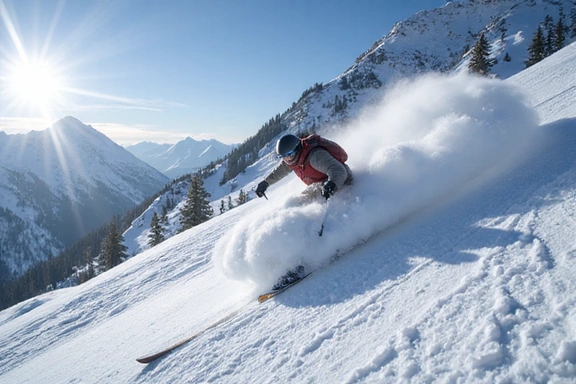
Skiing
From alpine descents to freestyle acrobatics, skiing is a cornerstone of the Winter Games, testing speed, agility, and artistic expression on snow.
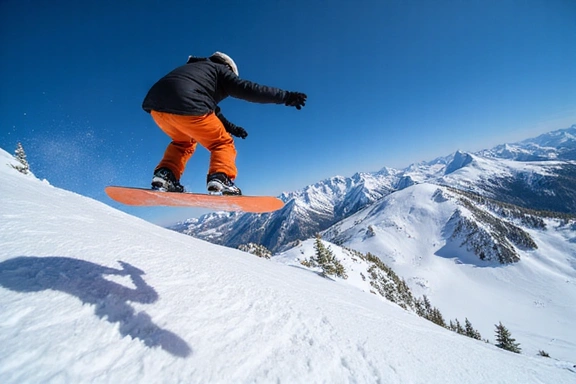
Snowboarding
Combining daring stunts with incredible balance, snowboarding events captivate audiences with gravity-defying jumps and intricate rail slides.
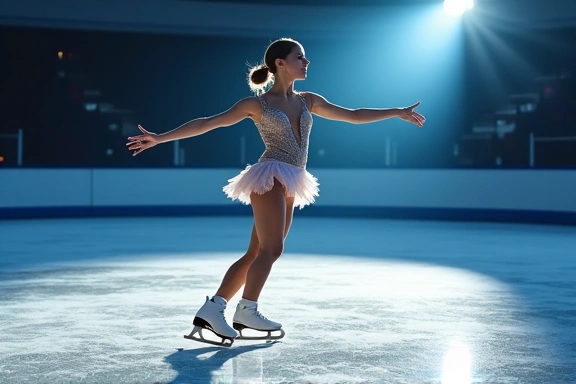
Figure Skating
A dazzling display of grace, artistry, and athleticism, figure skating showcases intricate jumps, spins, and synchronized routines on ice.

Ice Hockey
Fast-paced and physical, ice hockey is a team sport demanding exceptional skating skills, strategic play, and powerful shots.
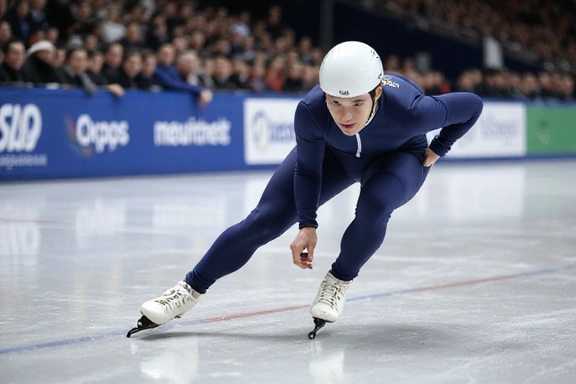
Speed Skating
A test of pure speed and endurance, speed skating sees athletes race against the clock and each other on oval ice tracks.
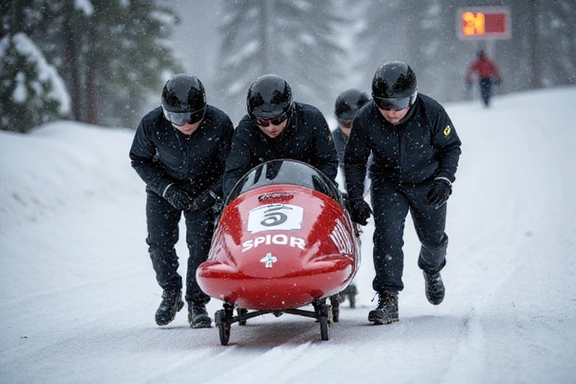
Bobsleigh
Teams hurtle down icy tracks in aerodynamic sleds, relying on precision steering and explosive starts to achieve incredible speeds.
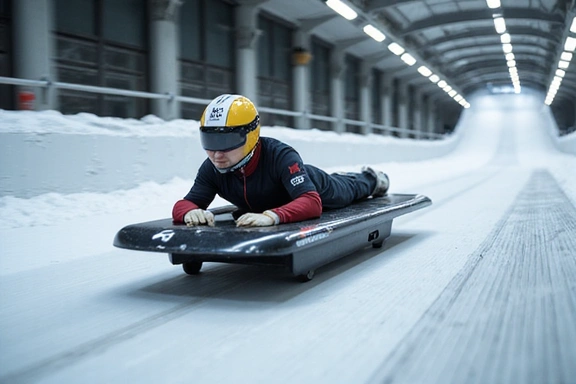
Luge
Athletes race feet-first down a challenging icy track on small sleds, a sport where split-second decisions dictate victory.
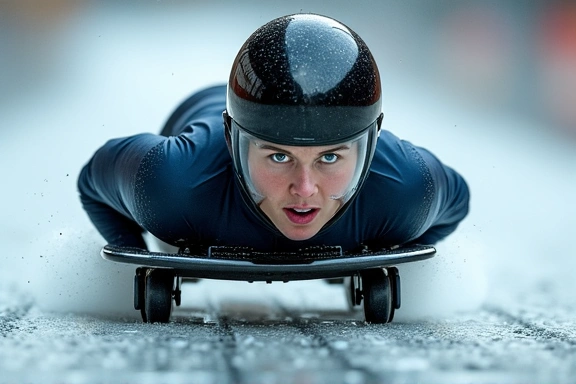
Skeleton
A thrilling sport where athletes slide head-first down a winding icy track on a small sled, demanding courage and precise control.
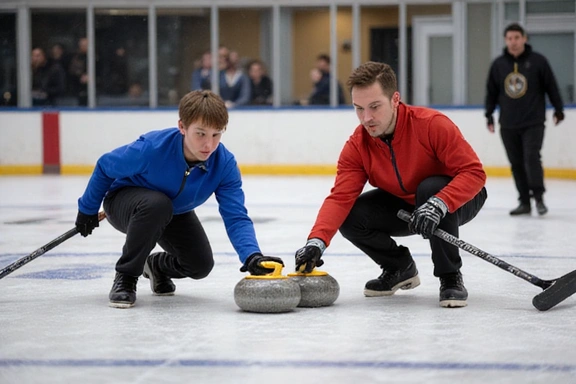
Curling
Often called "chess on ice," curling is a strategic team sport where players slide stones across a sheet of ice towards a target area.
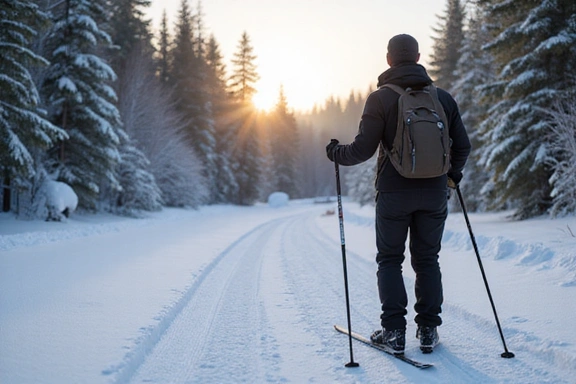
Biathlon
Combining the endurance of cross-country skiing with the precision of rifle shooting, biathlon is a true test of physical and mental fortitude.
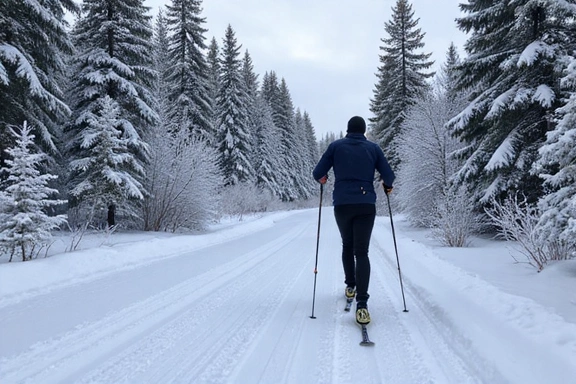
Cross-country Skiing
Athletes traverse varied terrain, relying on strength, technique, and endurance to cover long distances on skis.
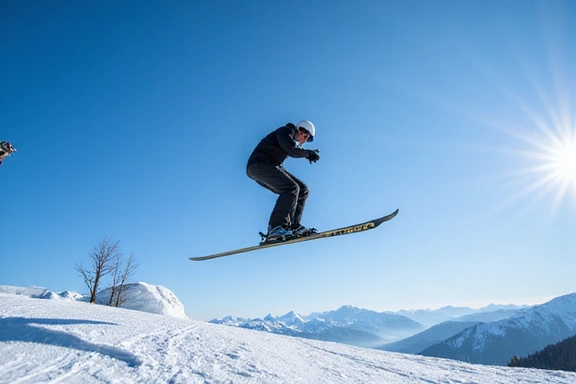
Ski Jumping
A breathtaking sport where athletes launch themselves from massive ramps, striving for maximum distance and perfect landing form.
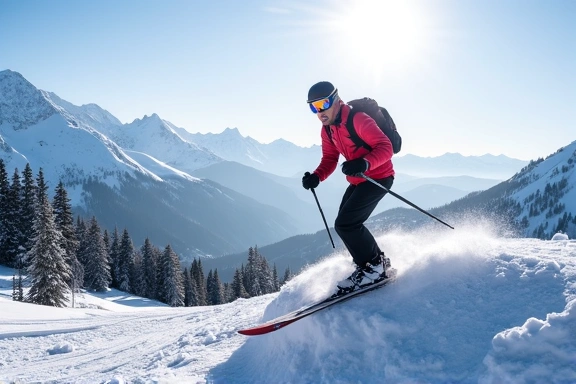
Nordic Combined
The ultimate winter endurance challenge, Nordic Combined combines the high-flying spectacle of ski jumping with the grueling stamina of cross-country skiing.
Skiing: Speed, Skill, and Style
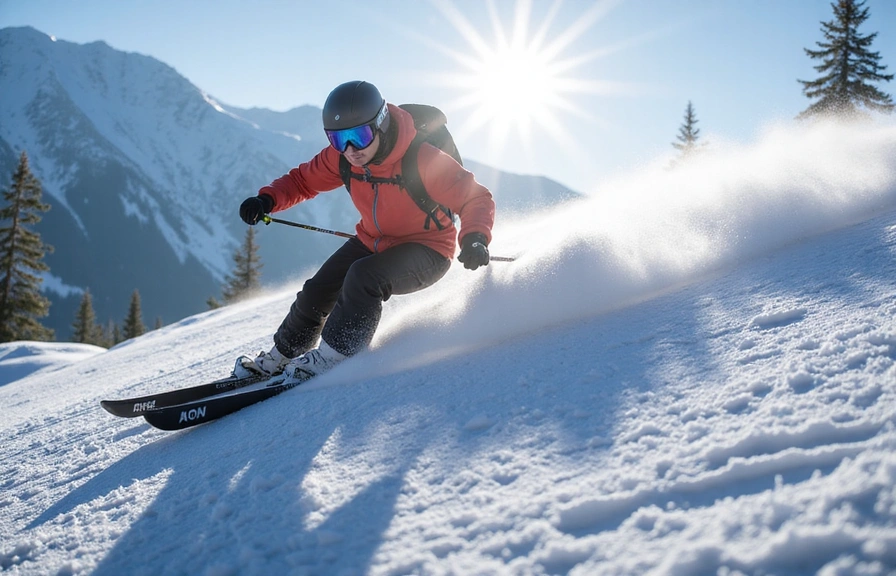
Skiing at the Youth Winter Games encompasses several thrilling disciplines, each demanding a unique blend of athleticism and finesse. From the raw speed of alpine downhill to the acrobatic artistry of freestyle, skiing events are always a highlight. Athletes navigate challenging courses, perform gravity-defying jumps, and execute precise turns, all while battling the clock or a panel of judges.
Basic Rules & Competition Format:
- Alpine Skiing: Competitors race down a designated course, aiming for the fastest time. Events include Downhill (pure speed), Slalom (tight turns), Giant Slalom (wider turns), Super-G (a mix of speed and turns), and Alpine Combined (one downhill/Super-G run and one slalom run). Penalties are incurred for missing gates.
- Freestyle Skiing: Focuses on aerial maneuvers, moguls, and halfpipe. Athletes are judged on execution, difficulty, amplitude, and landing.
- Cross-country Skiing: Athletes race over various distances and terrains using classic or freestyle techniques, emphasizing endurance and technique.
Typical Equipment:
Skis (specific to discipline), bindings, boots, poles, helmets, goggles, and specialized race suits are essential. Safety equipment, particularly helmets, is mandatory across all disciplines.
Preliminary Competition Schedule: Skiing
| Date | Time | Event | Venue |
|---|---|---|---|
| Feb 10 | 9:00 AM | Men's Downhill Training | Whiteface Mountain |
| Feb 11 | 10:00 AM | Women's Giant Slalom Qualifiers | Whiteface Mountain |
| Feb 12 | 1:00 PM | Freestyle Skiing: Moguls Finals | Mt. Van Hoevenberg |
Snowboarding: Aerials and Artistry
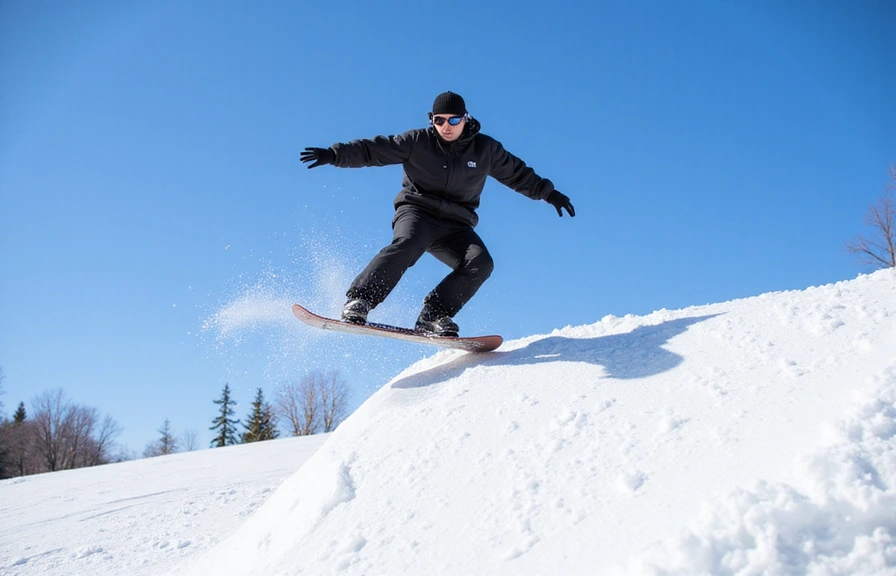
Snowboarding has rapidly become one of the most popular and visually spectacular sports at the Winter Games. It combines the thrill of downhill racing with the creative expression of aerial tricks and rail slides. Athletes demonstrate incredible balance, agility, and courage as they navigate challenging courses and perform complex maneuvers.
Basic Rules & Competition Format:
- Halfpipe: Riders perform aerial tricks as they move from one side of a U-shaped halfpipe to the other. Judged on amplitude, difficulty, execution, and variety of tricks.
- Slopestyle: Athletes navigate a course featuring various obstacles like jumps, rails, and boxes, performing tricks on each. Judged on overall impression, flow, and trick selection.
- Snowboard Cross: Multiple riders race simultaneously down a course with various features like jumps, rollers, and banked turns. First to the finish line wins.
- Parallel Giant Slalom: Two riders race head-to-head down parallel courses, emphasizing speed and precise carving.
Typical Equipment:
Snowboards (specific to discipline), bindings, boots, helmets, and protective gear (e.g., wrist guards, back protectors) are standard. Goggles are also essential for visibility and protection.
Preliminary Competition Schedule: Snowboarding
| Date | Time | Event | Venue |
|---|---|---|---|
| Feb 13 | 11:00 AM | Men's Halfpipe Qualifiers | Gore Mountain |
| Feb 14 | 2:00 PM | Women's Slopestyle Finals | Gore Mountain |
| Feb 15 | 9:30 AM | Snowboard Cross Team Event | Mt. Van Hoevenberg |
Figure Skating: Grace, Power, and Precision
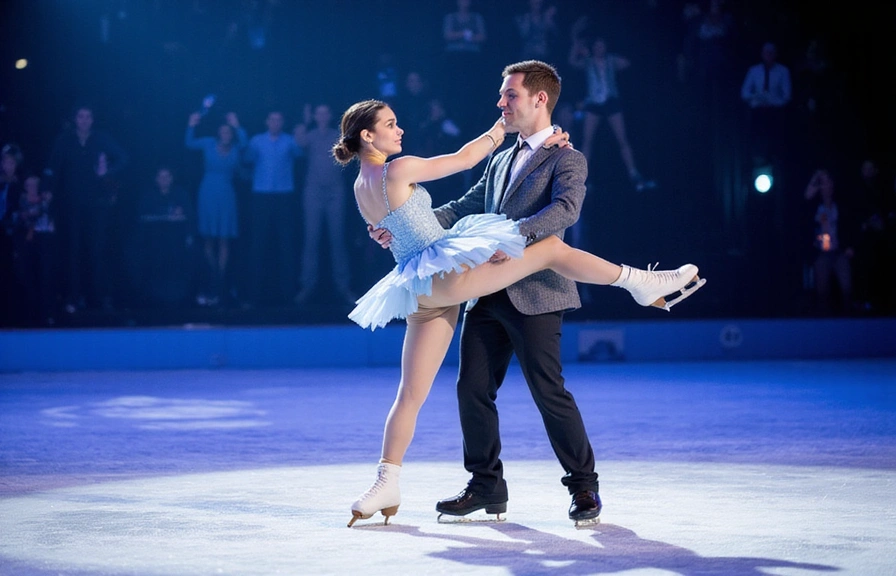
Figure skating is a captivating blend of athleticism and artistry, where skaters perform intricate routines on ice. It demands incredible strength, flexibility, balance, and musicality. Each performance is a unique storytelling experience, combining breathtaking jumps, graceful spins, and complex footwork patterns, all set to music.
Basic Rules & Competition Format:
- Singles (Men's & Women's): Skaters perform a Short Program and a Free Skate. The Short Program includes required elements (jumps, spins, step sequences). The Free Skate is longer and allows for more creative expression and higher difficulty elements. Scores are based on technical elements and program components (e.g., skating skills, performance).
- Pair Skating: Teams of one man and one woman perform lifts, throws, twist lifts, and synchronized jumps and spins. They also have a Short Program and a Free Skate.
- Ice Dance: Focuses on intricate footwork, lifts, and spins performed in unison, emphasizing rhythm, interpretation, and closeness. Unlike pair skating, no overhead throws or jumps are allowed.
Typical Equipment:
Figure skates (boots and blades), custom-designed costumes, and protective padding (for training, not competition) are key. Blades are sharpened regularly for optimal performance.
Preliminary Competition Schedule: Figure Skating
| Date | Time | Event | Venue |
|---|---|---|---|
| Feb 16 | 7:00 PM | Women's Singles Short Program | Olympic Center Arena |
| Feb 17 | 6:30 PM | Ice Dance Rhythm Dance | Olympic Center Arena |
| Feb 18 | 7:00 PM | Men's Singles Free Skate Finals | Olympic Center Arena |
Ice Hockey: The Ultimate Team Sport on Ice
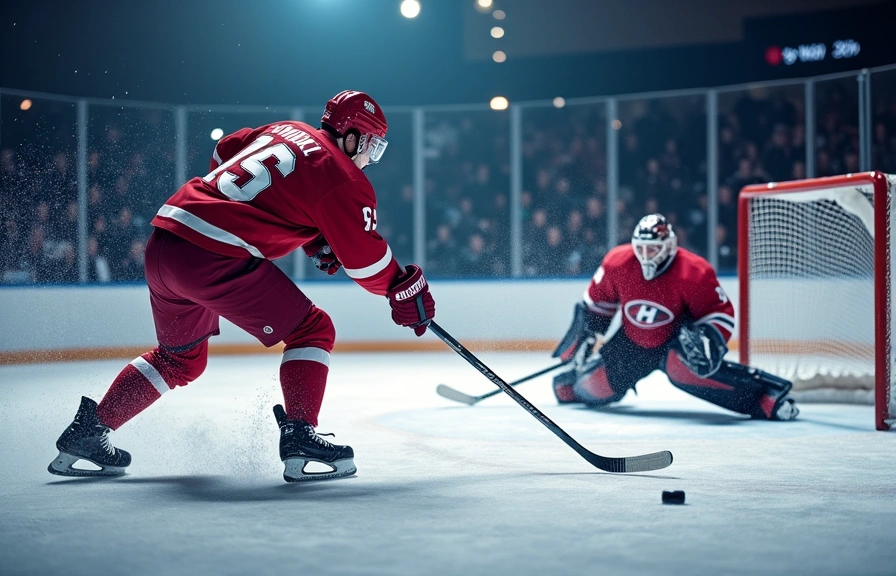
Ice hockey is a high-octane, physical team sport played on ice, where two teams of six players (five skaters and one goaltender) compete to score by shooting a rubber puck into the opposing goal. It's a game of speed, skill, strategy, and brute force, making it a thrilling spectacle for fans. The Youth Winter Games feature intense matchups showcasing the future stars of the sport.
Basic Rules & Competition Format:
- Objective: Score more goals than the opponent. Goals are scored when the puck completely crosses the goal line.
- Game Play: Consists of three 20-minute periods. If tied, overtime and a shootout may follow.
- Offsides: Players cannot enter the offensive zone before the puck.
- Icing: Shooting the puck from behind your own blue line across the opponent's goal line (with exceptions).
- Penalties: Infractions (e.g., tripping, holding, high-sticking) result in power plays for the opposing team.
Typical Equipment:
Skates, sticks, helmet (with full face mask), shoulder pads, elbow pads, shin guards, hockey pants, gloves, and a mouthguard are mandatory for player safety. Goaltenders wear extensive protective gear.
Preliminary Competition Schedule: Ice Hockey
| Date | Time | Event | Venue |
|---|---|---|---|
| Feb 19 | 1:00 PM | Men's Preliminary Round: Team A vs. Team B | Olympic Center Arena |
| Feb 19 | 4:30 PM | Women's Preliminary Round: Team C vs. Team D | Olympic Center Arena |
| Feb 20 | 7:00 PM | Men's Preliminary Round: Team E vs. Team F | Olympic Center Arena |